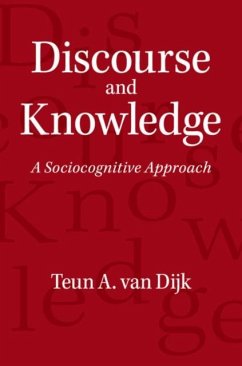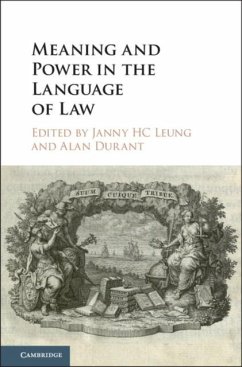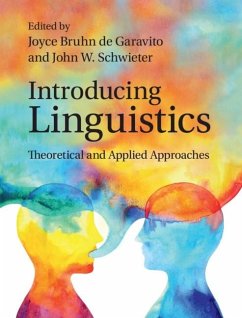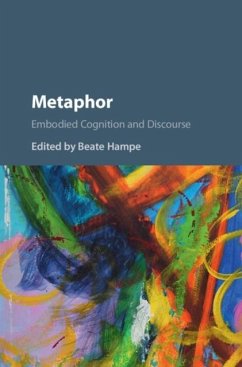
Language, the Singer and the Song (eBook, PDF)
The Sociolinguistics of Folk Performance
Versandkostenfrei!
Sofort per Download lieferbar
96,95 €
inkl. MwSt.
Weitere Ausgaben:

PAYBACK Punkte
48 °P sammeln!
The relationship between language and music has much in common - rhythm, structure, sound, metaphor. Exploring the phenomena of song and performance, this book presents a sociolinguistic model for analysing them. Based on ethnomusicologist John Blacking's contention that any song performed communally is a 'folk song' regardless of its generic origins, it argues that folk song to a far greater extent than other song genres displays 'communal' or 'inclusive' types of performance. The defining feature of folk song as a multi-modal instantiation of music and language is its participatory nature, m...
The relationship between language and music has much in common - rhythm, structure, sound, metaphor. Exploring the phenomena of song and performance, this book presents a sociolinguistic model for analysing them. Based on ethnomusicologist John Blacking's contention that any song performed communally is a 'folk song' regardless of its generic origins, it argues that folk song to a far greater extent than other song genres displays 'communal' or 'inclusive' types of performance. The defining feature of folk song as a multi-modal instantiation of music and language is its participatory nature, making it ideal for sociolinguistic analysis. In this sense, a folk song is the product of specific types of developing social interaction whose major purpose is the construction of a temporally and locally based community. Through repeated instantiations, this can lead to disparate communities of practice, which, over time, develop sociocultural registers and a communal stance towards aspects of meaningful events in everyday lives that become typical of a discourse community.
Dieser Download kann aus rechtlichen Gründen nur mit Rechnungsadresse in A, B, BG, CY, CZ, D, DK, EW, E, FIN, F, GR, HR, H, IRL, I, LT, L, LR, M, NL, PL, P, R, S, SLO, SK ausgeliefert werden.













